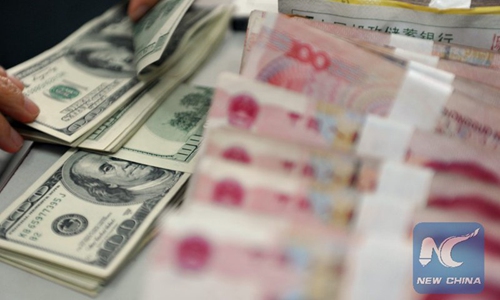HOME >> OPINION
Capitalist world is facing systemic crisis
By Zhu Andong Source:Global Times Published: 2020/1/29 11:20:54

Photo: Xinhua
At the beginning of the third decade of the 21st century, the international situation has become tense. However, this is just a new development of great changes unseen in a century, and another symptom which is formed when the capitalist world system in the model of neoliberalism falls into a systematic crisis.
Undoubtedly, the world economy is in a special historical period. The global economy is still in the shadow of the crisis which broke out more than 10 years ago. Economic growth has been sluggish for a long time, the level of debt remains high, negative interest rates are growing, the gap between the rich and the poor continues to widen.
40 years ago, faced with the "stagflation" crisis of economy, Western countries chose neoliberalism. By adopting neoliberalism, financial monopoly capital gradually usurps political, economic and cultural power in Western capitalist countries. Capital does away with social barriers and facilitates production, exchange, distribution and consumption, reshaping the world in keeping with its nature. The last round of global financial and economic crisis is a vehement outbreak of this contradiction.
In fact, the financial crisis in 2008 declared the failure of neoliberalism, and also provided a historic opportunity for Western countries to adjust their policies accordingly. However, financial capital pulled itself out of the crisis in the name of pumping up the market with public funds. As a result, financial capital not only hasn't suffered setback but has grown stronger since the crisis.
In this process, in order to save financial capital, the level of national debt in Western countries rose sharply, which led to the proportion of national debt in GDP of these countries increasing by an average of 30 percentage points. After that, the US and other countries took further tax cuts to stimulate the economy, which aggravated the fiscal crisis.
Meanwhile, Western countries generally adopt extremely loose monetary policies. On the one hand, interest rates are rapidly reduced to a very low level. On the other, a huge amount of capital is injected into the market through multiple rounds of monetary easing. The aim of this policy is to make it easier for businesses and households to borrow at a very low cost, and then investment and consumption can be boosted. However, due to the economic downturn and pessimistic expectation for the future, many enterprises and families try to de-leverage and cut debt. And the slow growth of investment and consumption results in a long-term stagnation of the economy.
Extremely loose monetary policies fail to reverse the decline of the economy; instead, they stimulate the expansion of asset bubbles. According to data provided by Global Housing Watch, a website attached to the international Monetary Fund, setting aside inflation, the global housing price index has exceeded the high point before the previous round of crisis. Even in Western countries where housing prices have not fully recovered due to the economic downturn, housing prices in some cities are far higher than before.
The situation in the stock market is even worse. Stock indexes in many countries have far exceeded their highs before the crisis. The US is the most typical one with its stock indexes hitting new highs in recent years.
In the face of this situation, the macroeconomic policies of Western countries face a dilemma. There is little room for expansionary policies, which may further aggravate asset bubbles, while deflationary policies may directly pierce bubbles and lead to crises.
What makes matters worse is that the new wealth of many countries flows to the rich on a large scale, and the gap between the rich and poor widens. What’s more, it’s hard to accept that many reform measures urgently needed by Western society that aim to curb financial speculation and fraud and alleviate contradictions of new liberalism cannot be carried out because of resistance from monopoly capital.
The financial and economic crisis in Western countries is gradually turning into a serious social and political crisis. What's more, Western mainstream ideology, including neoliberalism, can neither explain nor solve the current systematic and institutional contradictions of capitalism, and the cultural crisis is becoming more and more intense.
The author is associate dean at the School of Marxism, Tsinghua University. opinion@globaltimes.com.cn
Posted in: VIEWPOINT